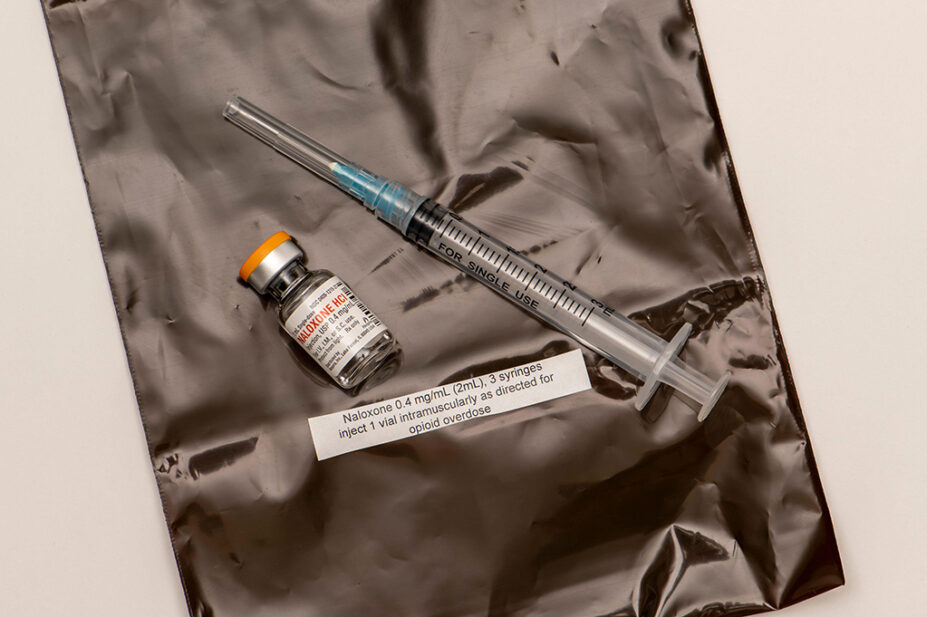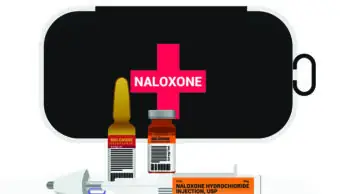
Michael Siluk / Alamy Stock Photo
The ability to supply naloxone without a prescription should be expanded to “any trained and competent non-registered members of the pharmacy team” under the supervision of a registered pharmacy professional, Community Pharmacy England (CPE) has said.
In January 2024, a Department of Health and Social Care (DHSC) consultation on amending legislation to allow supply of naloxone without a prescription by a wider group of services and professionals proposed that “pharmacy professionals” should be included in the list of professionals able to provide naloxone without a prescription.
In a previous consultation, held in 2021, the government proposed that the ability be given to pharmacists only, but it said it included different wording in the more recent consultation so that pharmacy technicians could also supply naloxone.
In its response to the new consultation, which closed on 6 March 2024, CPE said: “We agree with the proposed list of named services and professionals that would be enabled to supply naloxone without a prescription.
“However, regarding the limiting of supplies to registered pharmacy professionals, as supply is being advocated through other services and organisations via ‘route 2’, we would recommend that this definition be expanded to ‘pharmacy professionals, pharmacists and pharmacy technicians) and any trained and competent non-registered members of the pharmacy team under the supervision of a registered pharmacy professional.’”
Route 2 in the consultation proposes that organisations that are not public bodies or do not have statutory functions could register to be able to supply naloxone without a prescription.
The consultation also includes proposals that all new services and professionals taking on the role of providing naloxone — other than armed forces personnel — should complete training to understand appropriate practice on storing and supplying naloxone, and ensure that they can properly support someone being supplied with naloxone.
CPE said that pharmacists and pharmacy technicians would not need this training, but other pharmacy staff would.
“Current locally commissioned services provided from community pharmacies to support the provision of naloxone have different supply and training requirements,” the submission added.
“A nationally agreed training requirement will allow more consistent provision of the service by the pharmacy workforce, particularly in circumstances where pharmacy staff move between different pharmacies in different areas.”
In its response to the consultation, the Royal Pharmaceutical Society said it “strongly agreed” with the proposal to expand access to naloxone without a prescription.
“People who are experiencing homelessness can struggle with access to medication in general,” it said.
“Some are not in touch with any treatment services which would allow them to receive prescriptions for naloxone. Allowing settings or individuals who are in contact with these people the ability to supply naloxone would increase the availability and the chance of it being used to save a life.
“For individuals who use opioids, obtaining a prescription for naloxone may pose numerous barriers,
including practical or psychological barriers (e.g. stigma). Enabling services to supply naloxone without
a prescription can significantly increase access to this life-saving medication,” it added.
Naloxone, which is injected into the outer thigh or upper arm, is a treatment that can reverse the effects of an opioid overdose and prevent drug-related deaths.
In September 2023, the Scottish government announced plans for a national service that would enable emergency access to supplies of naloxone from all community pharmacies.
In England, more than 300 take-home naloxone kits were distributed by community pharmacies in two areas — Somerset and Wakefield — within the first year of a pilot programme in 2020/2021.


